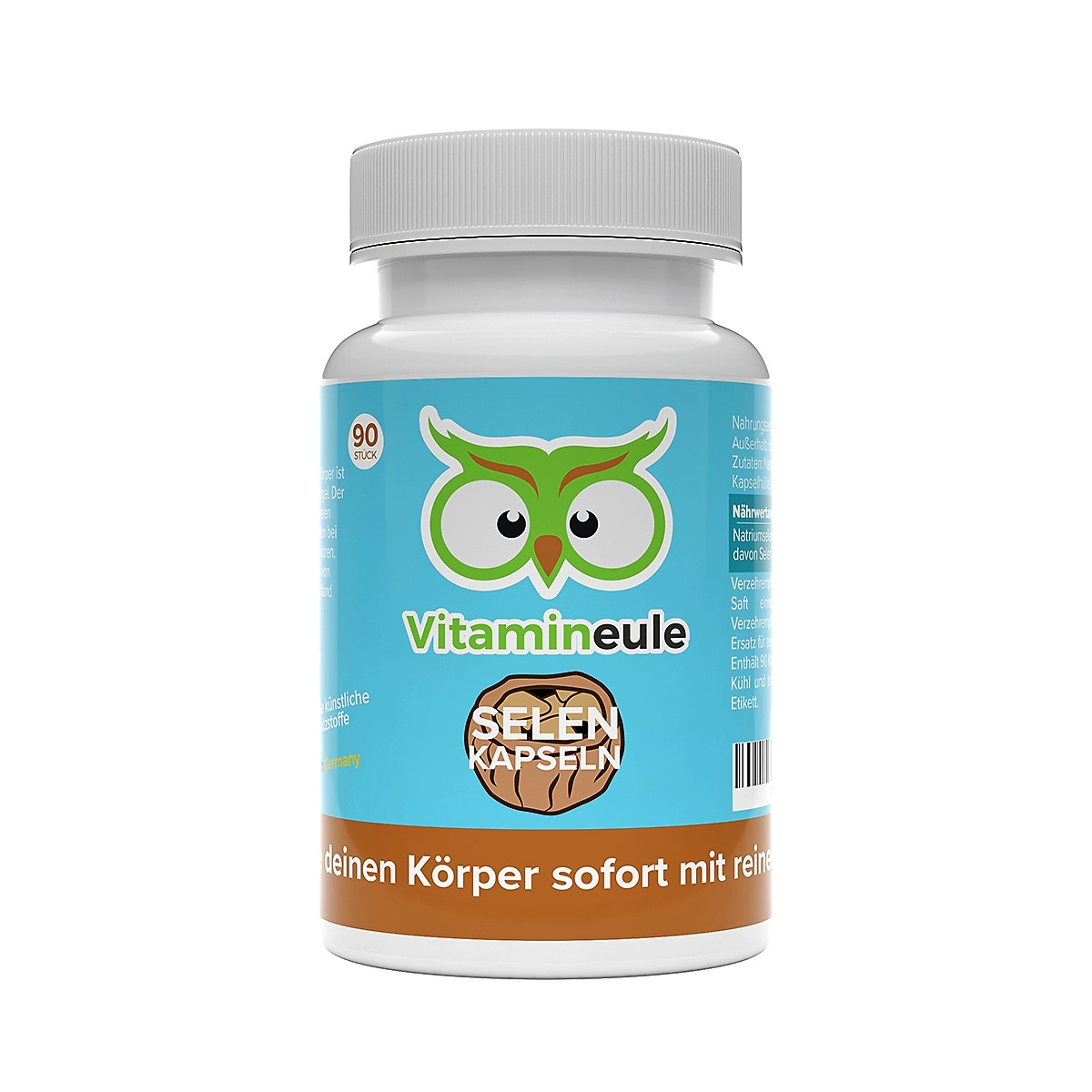
Team Vitamineule
Questions, wishes or suggestions? Just contact us by email or on Facebook.
1. what happens in the case of a selenium deficiency?
In many cases, a selenium deficiency is caused by a poor diet. If you eat a diet very low in selenium, the selenium stores in the human body are no longer filled and a selenium deficiency occurs. However, a selenium deficiency can usually be easily controlled. Those who want to eliminate a selenium deficiency quickly and effectively are often advised to take a dietary supplement. There are several forms of intake. Selenium tablets offer a quick way to raise selenium levels, but they always contain a large number of additives. Selenium capsules contain the active ingredient in a vegetable cellulose shell and are easier to swallow than tablets. In general, both forms are easy to handle and enter the circulation quickly.
2 Do we consume enough selenium in Germany?
The supply of selenium in Germany is often very scarce. The reason for this is the different concentrations in the soil. The selenium concentration depends on the oxygen availability, the PH-value and the percentage of organic carbon. Especially due to climate change, the selenium supply is becoming increasingly scarce. For this reason, selenium deficiencies are becoming more frequent.
Men need more selenium than women. According to the German Nutrition Society (DGE), an adult man should take in 70 micrograms of selenium a day. For women it is 60 micrograms. Breastfeeding mothers have an increased requirement in order to supply their child with sufficient selenium through their breast milk. Here the recommended amount is 75 micrograms of selenium. Children under the age of 10 should take about 30 micrograms of selenium a day. For children between 10 and 15 years of age, the daily requirement is already 50 micrograms of selenium. However, these recommended values do not apply to people with an increased selenium requirement due to illness. In general, one should keep in mind that age, weight and size always play a significant role.
3) How can I cover my selenium requirements through food?
Selenium is found in both animal and plant foods. Good sources of selenium include meat, fish and eggs. Animal foods also contain large amounts of iron. In addition, there are cabbage vegetables, lentils and nuts. Through a healthy and balanced diet, the daily selenium requirement can usually be well covered by food.
Top 10 foods containing selenium:
1. Brazil nuts
2. lentils
3. herring
4. mackerel
5. rice
6. mushrooms
7. emmental
8. egg
9. white cabbage
10. banana
4. dietary supplements containing selenium
If you want to increase a too low selenium value with a dietary supplement, you should definitely pay attention to the form of the active ingredient and its origin. Selenium capsules are particularly suitable for increasing selenium levels. They are very well tolerated and are utilized by the body to a high degree. The preparation should also not contain any chemical additives such as microcrystalline cellulose. If you buy a preparation from Germany, you can be sure that the product has also been produced safely and is of high quality.
Our recommendation:
Vitamineule® Selenium Capsules
In our online shop you will find our selenium capsules from Vitamineule®, which are completely free of artificial additives. Vitamineule® Selenium Capsules contain 200 µg of pure selenium from mineral rock per capsule. Each can contains 90 capsules. In addition to fast & free shipping, we offer a voluntary six-month return guarantee on all products.
5. conclusion: What happens with a selenium deficiency?
In the case of a selenium deficiency, the body can no longer be adequately supplied with selenium. A selenium deficiency can occur for a variety of reasons such as a selenium-deficient diet, alcoholism, heavy dieting, and foods from selenium-deficient soils. A deficiency can be treated well by switching to selenium-rich foods. Supplementation of selenium in the form of dietary supplements can be very helpful in this regard.
Further reading:
- The role of selenium in thyroid gland pathophysiology.
- A Summary of New Findings on the Biological Effects of Selenium in Selected Animal Species-A Critical Review
- Acute human toxicity and mortality after selenium ingestion: A review
- Collecting review: use of Selenium in therapy and prevention of muscular diseases in animals]

